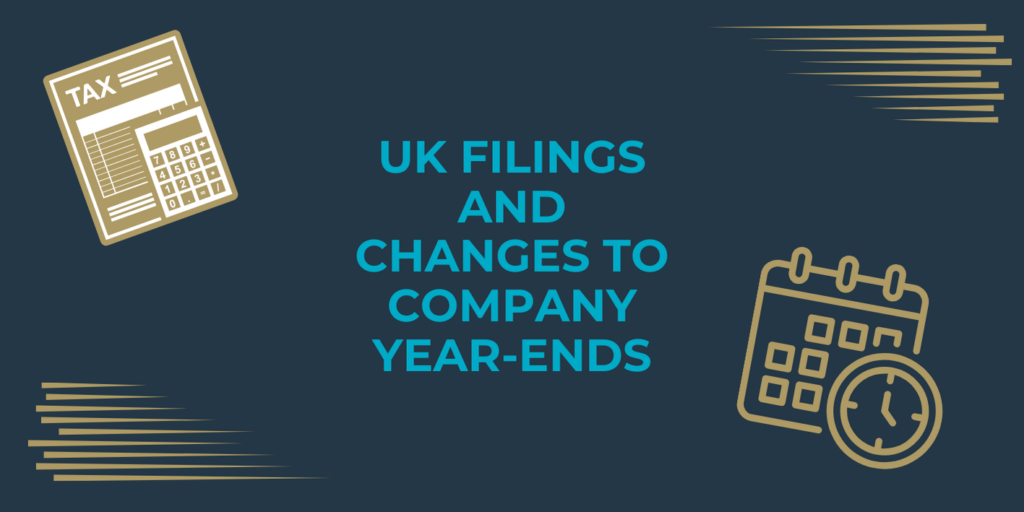UK filings and changes to company year-ends

Guidelines for filings in the UK:
The filing deadlines for accounts vary depending on the type of account and the jurisdiction. Here are some general guidelines:
Limited companies:
Annual accounts for companies:
- 21 months after the date you registered with Companies House OR
- 9 months after the accounting reference date (year-end)
Corporation tax returns: 12 months after the end of the accounting period.
VAT returns: Due on the 7th day of the month following the end of the VAT quarter (3 months).
Charities:
Annual returns must be submitted within 10 months of the end of your financial year.
Individuals:
Tax returns: Due on 31 January following the end of the tax year (6 April – 5 April).
P11D submissions: 6 July
VAT returns: Due on the 7th day of the month following the end of the VAT quarter (3 months).
Changing company year-ends:
Implications of changing year-ends:
Changing your year-end can have significant implications for your business, including:
Tax Implications: Different year-ends can affect the timing of your tax payments.
Financial Reporting: Altering your year-end can impact the frequency and timing of your financial reports.
Business Operations: Changes in year-ends may require adjustments to your accounting systems and business processes.
Reasons for Changing Year-Ends:
Common reasons for changing year-ends include:
Aligning with Industry Practices: Some industries have standard year-ends that can simplify comparisons and benchmarking.
Improving Cash Flow: By strategically timing your year-end, you may be able to optimize your cash flow by deferring tax payments or accelerating deductions.
Business Cycle Alignment: If your business has seasonal peaks or troughs, aligning your year-end with these periods can provide a clearer picture of your financial performance.
Administrative reasons: Aligning accounting dates with other companies in the same group.
For more help or information, please contact your local Perrys branch.








